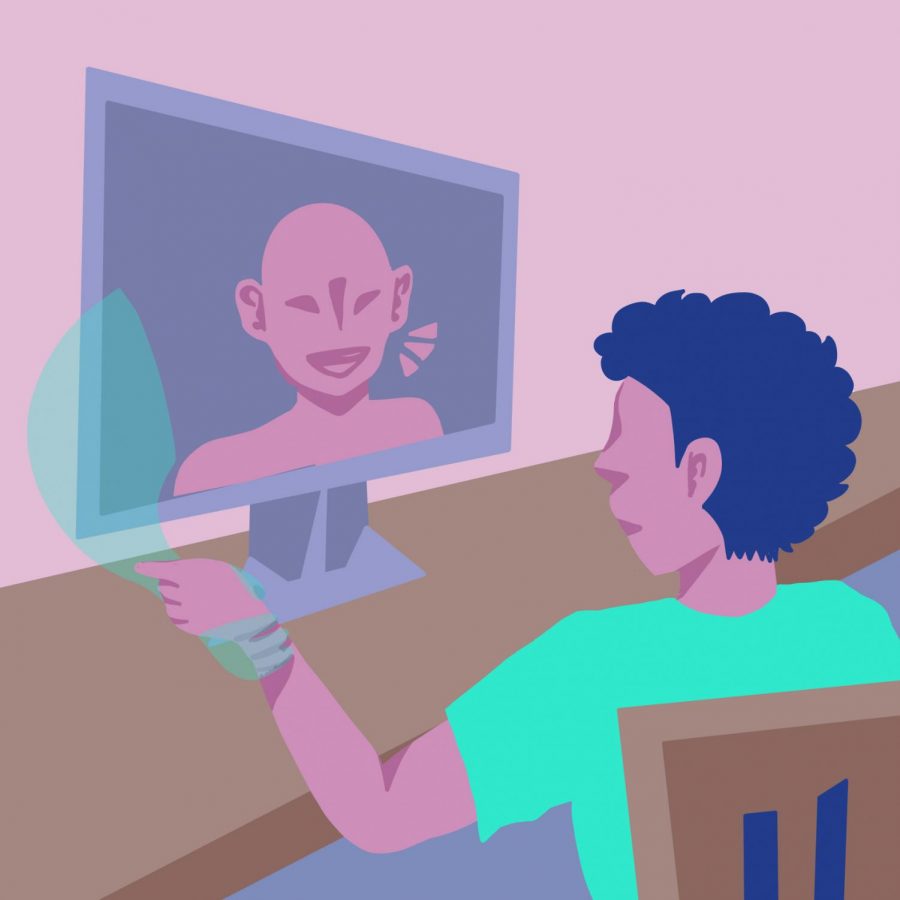How students’ love languages changed during pandemic
April 9, 2021
Separated by 180 miles and the COVID-19 pandemic, Jazmine Necessary and her partner sit together on FaceTime almost every night.
“Sometimes (FaceTiming) feels like another screen to look at,” government junior Necessary said. “I really enjoy quality time with them, (but) I wish it was in person. I have to remind myself to put in the effort … (for) that quality time.”
Quality time, words of affirmation, gift giving, physical touch and acts of service are the five main love languages. In the current culture of social distancing and isolation, some students have had to adapt their love languages, or the ways they give love to others and receive love in return.
Necessary said she primarily expresses her love to others through acts of service, such as running errands. When she was separated from her partner and friends during quarantine last March, her love language changed.
“It transformed into gift-giving … and words of affirmation,” Necessary said. “I would send (gifts) from Amazon or Etsy because I still wanted to do (things) for them even though I couldn’t do it in person.”
Biology freshman Tamara Rodriguez said she has also had to find other ways to express her love to others because of social distancing.
“I’m a hugger,” Rodriguez said. “If it wasn’t for the pandemic, I (still) would (be). But I don’t know what (people) have been doing. I could catch (COVID-19).”
Rodriguez said although she can’t act on her love language of physical touch, she has found joy in writing letters to her friends and family.
“If you receive a letter from me, that means I consider you someone very close to my heart,” Rodriguez said. “I indulge myself within the letter. I think writing letters is such a sweet, simple gesture.”
Not a fan of texting, Rodriguez said writing letters and FaceTime have allowed her to remain connected to family and friends.
Sarah Jarrett said FaceTime also became a tool for her during quarantine, though it made her want to be in person with loved ones even more.
“It didn’t feel the same,” psychology junior Jarrett said. “It felt impersonal because they weren’t physically there.”
Jarrett said her love languages are quality time and physical touch. The COVID-19 pandemic has denied her both, so she said she quarantined multiple times within the past year to meet with loved ones.
“There were periods where I would be isolated for so long,” Jarrett said. “Then I’d see someone for one day, and I’d be like, ‘You know what, this is worth it.’”
After Jarrett hadn’t seen her grandmother for 10 months, she said she felt as if she was missing a parental figure in her life. She decided to quarantine for two weeks just to spend Easter with her.
“I grew up having a very constant relationship with my grandmother,” Jarrett said. “(I felt) deprived of that time with someone who means a lot to (me).”
On Easter, Jarrett, along with her mother and sister, safely reunited with her grandmother over lunch after the family had been fully vaccinated.
“I got in the car with my mom (on the way there) and just started crying,” Jarrett said. “Then I cried on the way back because I was able to give (my grandmother) a hug without any fear. We’re getting back to doing things that we’d normally do.”
Editor’s Note: This article first appeared in the April 9 issue of The Daily Texan.











